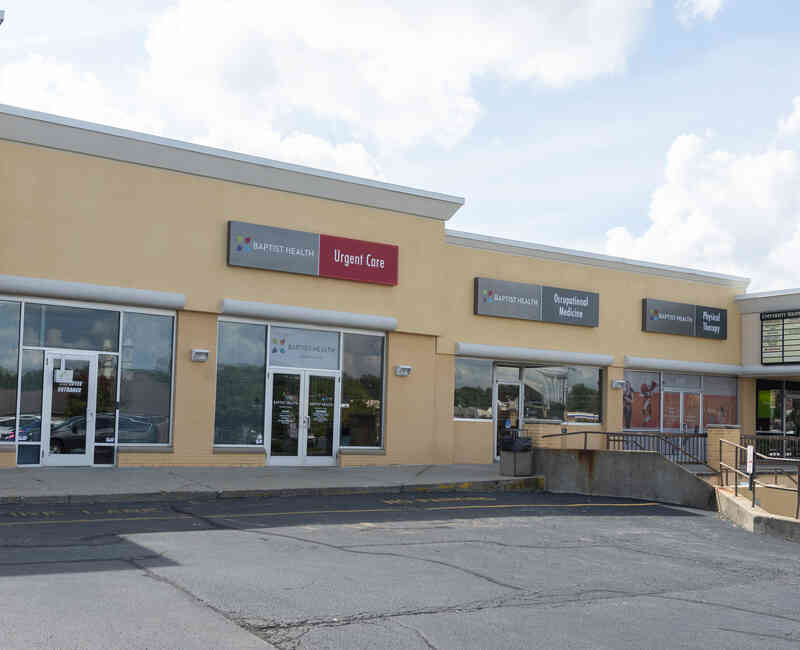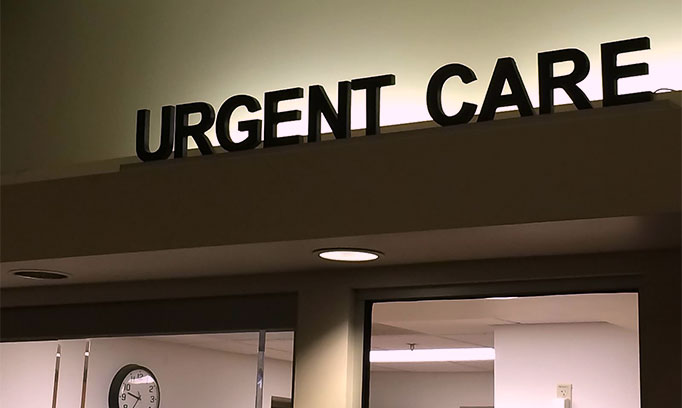Essential Services Provided by Clinics Specializing in Urgent Care
Essential Services Provided by Clinics Specializing in Urgent Care
Blog Article
The Relevance of Urgent Care Centers in Connecting the Void In Between Primary Treatment and Emergency Situation Solutions
Urgent care facilities have become an important part of the healthcare landscape, effectively dealing with the critical need for immediate medical interest without resorting to emergency situation solutions. By providing care for non-life-threatening problems, these centers aid to minimize the burden on emergency clinic and boost person access to prompt therapy. Their expanded hours and varied services accommodate a growing population looking for alternatives to conventional medical care. The progressing function of urgent care facilities raises vital concerns concerning their integration within the wider health care system and the implications for client outcomes and source appropriation.
Review of Urgent Treatment Centers
Immediate care facilities have actually come to be a crucial element of the health care shipment system, giving easily accessible medical services for non-life-threatening problems. These centers usually operate outdoors conventional office hours, offering individuals an alternative to emergency situation rooms and health care settings. Individuals looking for urgent care usually present with problems such as small injuries, infections, or illnesses that need punctual attention however do not present an immediate risk to life or limb.
Immediate treatment facilities are staffed by a series of healthcare experts, consisting of physicians, nurse specialists, and doctor aides, that are equipped to diagnose and treat different clinical problems. They often feature analysis devices such as X-ray equipments and laboratory services, enabling them to offer detailed treatment on-site.
The facility of urgent care centers has been influenced by the enhancing demand for timely medical services in a hectic society, where clients might battle to safeguard consultations with health care companies. Therefore, these centers intend to alleviate congestion in emergency divisions, improving overall healthcare performance. Furthermore, immediate care centers usually act as a bridge between medical care and emergency solutions, guaranteeing that people receive ideal care tailored to their details medical requirements.

Benefits of Urgent Care Services
Accessing timely healthcare is a substantial benefit of immediate care solutions. These facilities give immediate interest for non-life-threatening problems, effectively reducing wait times contrasted to typical emergency departments. Patients looking for take care of small injuries, illnesses, or immediate health problems can acquire treatment without the lengthy delays usually connected with medical facility sees.
One more secret advantage is the extended hours of procedure. Numerous urgent care facilities are open evenings and weekends, fitting patients who might not have the ability to visit their health care supplier during conventional workplace hours. This versatility makes urgent care an easily accessible alternative for those with active routines or unexpected health and wellness problems.
Moreover, immediate care facilities often supply a vast array of solutions, including analysis testing, X-rays, and basic research laboratory solutions. This detailed strategy enables fast diagnosis and therapy, improving person satisfaction.
Furthermore, immediate treatment centers are generally extra cost-efficient than emergency rooms, making them an eye-catching choice for people without insurance coverage or those with high-deductible strategies. Overall, immediate care solutions play a vital function in providing available, timely, and budget-friendly healthcare.
Comparison With Primary Care
Normally, clients often evaluate their alternatives between urgent care centers and medical care companies when seeking clinical interest. Both offer crucial duties in the medical care system, yet they vary dramatically in availability, scope, and expense.
Main treatment companies are normally the initial factor of contact for individuals, concentrating on lasting health and wellness administration, preventative treatment, and persistent illness monitoring. They supply continuity of care, cultivating a patient-provider partnership that enables comprehensive health and wellness assessments and personalized treatment strategies. Nevertheless, arranging a consultation can be lengthy, typically requiring days or weeks beforehand.
In contrast, immediate care facilities offer immediate treatment for non-life-threatening problems that need prompt focus, such as small injuries or infections. These facilities often run beyond standard office hours, suiting people who may not have the ability to visit their health care supplier during regular service times. Furthermore, urgent treatment is typically more cost-efficient than emergency clinic visits, making it an enticing alternative for those with restricted health care access.
Eventually, while urgent treatment centers and health care service providers both add to individual health, they deal with distinctive requirements, making it crucial for patients to establish which option finest lines up with their circumstances.
Emergency Situation Services Interaction
The communication in between urgent treatment facilities and emergency services is a crucial facet of the health care landscape, specifically when patients face situations that might rise in seriousness. Immediate treatment centers function as a bridge between medical care and emergency divisions, attending to non-life-threatening problems that require instant interest. This cooperation boosts client results and maximizes resource allotment within the medical care system.
When people present with not dangerous yet immediate issues, urgent care facilities can efficiently handle their demands, reducing congestion in emergency clinic. When a client's condition surpasses the extent of immediate care therapy, Facilities furnished with diagnostic capabilities can help with timely referrals to emergency situation solutions. This seamless interaction aids make certain that individuals receive the appropriate level of treatment without unneeded delays.
Additionally, efficient communication between urgent treatment companies and emergency services is crucial. Sharing patient details and therapy histories promotes coordinated treatment, decreasing the threat of repetitive tests and treatments. As medical care remains to progress, the dynamic relationship in between immediate care facilities hop over to these guys and emergency services will certainly play an essential role in boosting individual care performance, contentment, and general health end results within the neighborhood.
Future of Urgent Care Facilities
As health care demands evolve, the future of urgent care facilities is positioned to come to be increasingly important article to the overall medical ecosystem (Urgent Care). These centers are likely to increase their roles by including advanced innovations, such as telemedicine, expert system, and electronic health document integration. This will improve patient gain access to and streamline care sychronisation in between immediate care, medical care, and emergency situation solutions
Additionally, immediate treatment centers are expected to diversify their service offerings to include precautionary care and chronic illness administration. This change will certainly position them as vital components in handling populace wellness, lowering the concern on emergency situation divisions, and addressing voids in health care availability.
The growing trend of value-based care will certainly better accelerate the transformation of urgent treatment centers, motivating them to concentrate on patient outcomes and complete satisfaction. Facilities might likewise adopt joint technique models, working carefully with specialists and key treatment companies to guarantee extensive client management.
Conclusion
To conclude, urgent treatment facilities serve an essential function in the medical care system by supplying immediate accessibility to treatment for non-life-threatening problems, effectively alleviating stress on emergency solutions. Their extended hours and varied variety of solutions improve person benefit and satisfaction, while likewise ensuring proper treatment shipment. As medical care needs continue to advance, the role of immediate care facilities will likely end up being increasingly considerable, more bridging the space in between primary care and emergency solutions.
The establishment of immediate care centers has been influenced by the raising demand for timely clinical solutions in a busy society, visit this site right here where clients might battle to secure visits with main care suppliers. In addition, urgent care centers commonly offer as a bridge in between primary care and emergency services, guaranteeing that people get appropriate care tailored to their specific medical needs.
Numerous urgent care facilities are open evenings and weekends, accommodating clients who may not be able to visit their primary care company during common workplace hours (Urgent Care). As medical care proceeds to progress, the vibrant partnership in between urgent care centers and emergency situation solutions will certainly play a pivotal role in improving client care efficiency, complete satisfaction, and general health and wellness results within the area

Report this page